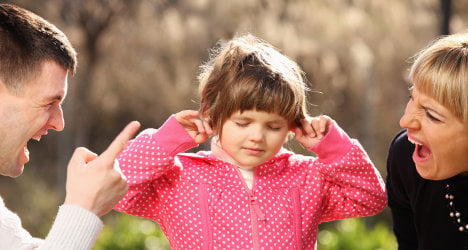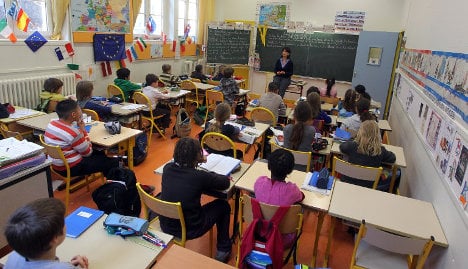Paris education chiefs have provoked the wrath of Anglo parents after deciding to give priority for places in the international sections of three of the city's bilingual schools to pupils from within Paris.
That means that those living in les banlieues or the suburbs outside Paris will almost certainly miss out on a school place despite having already passed the tough English-language entry tests which they spent years preparing for.
Parents are vowing not to give up without a fight and have launched a petition on the site Change.org, with almost all of the desired 1,500 signatures achieved as of early Thursday afternoon.
Those parents have also threatened to sue the capital's education authority, the Académie de Paris.
“This is has come out of nowhere. We had no warning this would happen,” parent Isabelle Dennieau told The Local. “People only found out once the application process was closed.
“Some pupils have been preparing for their tests for two years. They’ve invested so much time into studying,” she added.
The international sections of the three schools Honoré de Balzac (17th) Maurice Ravel (20th) and Camille Sée (15th) are much sought after as they are part of the French national education system but allow around 30 pupils in each year group access to bilingual classes, on top of the French curriculum.
The pupils are predominantly from parents of expat or binational couples who are keen for their children to learn subjects like history and literature in English, but also remain part of the French state system.
Pupils often travel in to Paris from far and wide to attend the schools.
SEE ALSO: Dos and Don'ts for raising bilingual children

It's not just those in the English section that are affected but also in other bilingual sections including Italian, Spanish, Japanese and Arabic.
“These sections are a fantastic way for communities to mix, especially those from outside Paris who are not privileged kids at all,” says Dennieau, who lives within Paris.
A leaflet sent out to all parents telling them of the need to protest the change stresses that the Paris terror attacks highlight “how urgent it is to prioritize the social integration of less privileged children.”
One of those parents directly affected is Derek Ferguson, originally from Britain, whose daughter Alice is waiting to hear whether she will have a place in the international section at Balzac.
The family moved out of Paris in February and now face the prospect that the relocation could cost their daughter a place at the school.
Ferguson, who said he only found out last week about the change in rules, said he backs taking legal action against the Académie de Paris.
“We’ve been building up to this for three to four years and we were expecting to get the result this week,” he told The Local.
“We moved outside of Paris on the assumption that all would be well. If she doesn’t get in I have no idea what we’ll do for my daughter’s education,” he said.

“The irony of the situation is that those who can afford to stay in Paris are those who can probably afford to pay for private education.
“Those of us who have felt obliged to move to the suburbs are now going to feel forced to move into the private sector for the bilingual education of our children yet are probably less likely to be able to afford it.”
The schools themselves are believed to be against the move to prioritize Paris children and it remains to be seen whether they follow the directive of the education authority.
The Académie de Paris has not yet responded to The Local's request to explain the change in the rules, but parents believe the motivation comes from a need to cut costs rather than anything to do with snobbery.
“They just don't want to pay for the children who are not from Paris,” said Isabelle Dennieau.
The move to favour Parisian pupils over those from the suburbs comes at a time when the French government is under pressure to reduce inequality in its schools system.
France's Minister of Education Najat Vallaud-Belkacem came under fire for a package of reforms designed to make schools less elitist.
One of the more controversial reforms was the move to scrap the learning of a second modern language for gifted children (around 16 percent took these classes) at the age of 11, replacing it with a modern language for everyone at age 12.



 Please whitelist us to continue reading.
Please whitelist us to continue reading.
Member comments